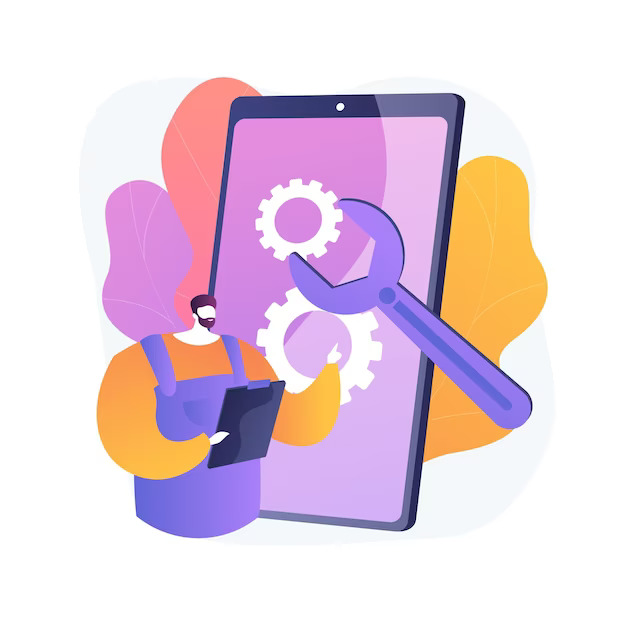
Imagine walking into a vast library where the books are not categorized, shelved or even labeled.
Frustrating, right?
Now, picture a call center without effective knowledge management. In essence, it's akin to that chaotic library – every call is a hunt for the right information. Knowledge, undeniably, forms the core of a call center. Yet, in the race to meet everyday priorities, the potential of streamlined knowledge management often gets overshadowed.
Why Knowledge Management Matters in Call Centers
A call center is not just about answering phones. It’s the frontline of your brand, be it an in-house team or call center outsourcing provider, facing a myriad of calls, each with its own set of challenges, nuances, and demands. The volume and variety of information that agents must navigate – from policies and products to services – can be daunting.
Consider this: if knowledge remains uncategorized or unshared, agents might handle similar calls in vastly different ways, leading to inconsistencies in customer service and an increased margin for error. In fact, did you know agents spend a staggering 16% of their time toggling between 4 to 7 apps while assisting customers? For larger setups (500+ seats), 50% of agents shift between 7+ apps in a single interaction. This leads to inefficiency as well as a disjointed customer experience.
This challenge is further amplified when we consider that, as per Aberdeen’s research in April 2023, only 35% of companies expressed full satisfaction with their ability to leverage data for effective decision-making.
The answer? A robust knowledge management strategy. It’s the glue that ensures not only consistency but also efficiency across the board. From reducing the stress levels of agents and supervisors to ensuring customers receive streamlined services, knowledge management is no longer a luxury but a necessity.
Facing the Challenges Head-On
While the advantages of knowledge management for customer service is clear, the road to implementing it is often filled with obstacles. From high agent turnover rates and increasing KPI demands to maintaining compliance and ensuring high-quality customer satisfaction, call centers are under constant pressure.
However, the rewards far outweigh the challenges:
- Boosted KPIs, from reduced call handle times to improved first-call resolution.
- Consistency, ensuring every customer receives uniform quality of service.
- Decreased training periods for new agents.
- Heightened agent morale and confidence.
- Enhanced customer satisfaction and loyalty.
- Reduced escalations and complaints.
Consider this: striving for the golden standard of answering 80% of calls in under 20 seconds might be ambitious, but with streamlined knowledge management, many are now eyeing a sharper 90% in under 15 seconds.
Making Knowledge Management Work for Your Call Center: A Step-by-Step Guide
In the ever-evolving landscape of call centers, merely adopting tools isn't enough. It's about building a strong knowledge management framework to serve as the foundation of the center's operations. The following best practices for knowledge management are tailored to empower leaders with actionable insights, allowing them to unleash the full potential of KM.
The result? Enhanced efficiencies and a transformative customer experience.
Without further ado, let's get into how to make KM work for your contact center.to
1. Content Planning is Paramount
In the modern era of information overload, quality always outshines quantity. Start with a discerning eye and a strategy. Understand what your end-users need most and prioritize accordingly. This is not about hoarding data; it's about curating knowledge. Reflect on:
- The questions most frequently posed by customers and agents.
- The goldmine of information held by your veterans in the field.
- The daily responsibilities your agents undertake and the policies they need to abide by.
Pro Tip: Run a monthly forum where agents can share the most common queries they encountered. This will help keep your content plan relevant and dynamic.
2. Mapping the Knowledge Landscape
Knowledge isn’t static. It's a living, evolving entity, especially in the fast-paced environment of call centers. Here's how you keep up and stay ahead:
- Engage in regular, open dialogues with your agents. Their on-ground experience can provide invaluable insights.
- Organize monthly "knowledge-sharing" sessions. Allow seasoned staff to share their insights and experiences. This not only captures latent knowledge but also fosters a sense of community and mentorship among your team.
- Regularly review and update your standard operating procedures. What was relevant six months ago might be outdated today.
3. Beyond Memory: The Era of Digital Guides
We live in the age of information, where the expectation is instantaneous responses. With 27% of customers citing ineffectiveness as their top frustration with customer service, it becomes evident that expecting agents to memorize everything is not only unrealistic, it's inefficient. Digital guides serve as the safety net, ensuring that every agent, whether a newbie or a veteran, has access to the same, consistent information, thereby addressing such customer frustrations head-on.
- Call Scripts: Especially crucial for complex queries. A well-structured script can be the difference between a resolved issue and an escalated call.
- Action Playbooks: Standardized responses ensure uniformity. But remember, it’s essential to train agents to use these as a guide, not a rigid rulebook. Personalized interactions, after all, are what 71% of consumers desire.
- Safety Nets: Checklists are lifesavers, especially in high-pressure situations. They streamline processes and reduce the margin for error.
4. Tech Choices: Picking the Right Knowledge Management Software
Today’s tech landscape offers a plethora of options. The key is finding what fits your call center's unique needs. Making use of intuitive knowledge management tools can simplify content additions, updates, and searches. Furthermore, integration capabilities can streamline tasks. For instance, if your tool can integrate with your existing systems, it can drastically reduce the screens your agents need to juggle.
Some tools to consider including in your call center tech stack for effectively helping with knowledge management include:
- Knowledge Base Platform: This is a centralized database where information is stored, organized, and managed. It often contains FAQs, product details, policies, and procedures that agents can quickly reference.
- Intranet Software: A private network accessible only to an organization's staff. It can host a combination of knowledge bases, news, updates, and other essential resources.
- Call Scripting Software: Provides agents with a script that they can follow during calls, ensuring consistency and accuracy in customer interactions.
- Learning Management System (LMS): Software that manages and delivers training courses. Useful for training new agents or updating current agents about new products, policies, or procedures.
- Interactive Voice Response (IVR) Systems: They guide callers through a series of voice prompts, allowing them to select options, which can direct them to the most appropriate agent or recorded answer.
- Collaboration Platforms: Tools like Slack or Microsoft Teams where agents can communicate in real-time, share knowledge, and seek quick help from peers or supervisors.
Pro Tip: When possible, opt for a trial period before fully committing to a software tool. Get feedback from your agents—they're the ones who'll be using it the most.
5. Optimizing Workforce Management
An informed agent is efficient, but an informed and well-managed agent can truly elevate customer experiences. Knowledge management insights, when combined with efficient workforce management, ensure you have the right number of agents with the right knowledge at the right time. By understanding peak call periods, you can adjust staffing, ensuring that customers aren't left waiting.
6. Identifying and Addressing Performance Gaps
Every call center strives for perfection, but in reality, there are always areas to improve. Knowledge management tools, when paired with a keen analytical eye, can spotlight these areas. Once identified, targeted customer service training can elevate agent performance, leading to happier customers and improved KPIs.
Pro Tip: Conduct regular performance reviews with your agents, but ensure they're constructive. Use them as an opportunity to learn, grow, and improve.
7. Cultivating a Continuous Improvement Mindset
In the constantly evolving landscape of customer interactions, stagnation is a critical risk. By fostering a continuous learning and development culture, you ensure that your call center not only keeps pace but often sets industry benchmarks.
- Regular Reviews: Like any other process, knowledge management requires consistent checks. Regular content reviews ensure that your knowledge base remains accurate and up-to-date.
- Feedback-Friendly Environment: Agents are on the front lines, interacting with customers daily. Create channels for them to communicate what's working and what's not in the knowledge base.
- Stay Updated: The world doesn't stand still, and neither should your training sessions. Periodic updates, especially after policy or product changes, are vital.
Pro Tip: Consider using gamification to encourage feedback. A reward system can stimulate more agents to contribute insights and improvements.
8. Enhancing Self-Service Options
Today's customer is tech-savvy and values autonomy. By offering self-service software, you cater to this preference and simultaneously streamline agent workload.
- FAQs: Often, customers have common queries. An easily accessible FAQ section can offer instant resolutions, enhancing customer satisfaction.
- Knowledge Base Insights: Utilize data from your call center knowledge base to identify common search queries. Ensure these topics are prominently addressed in your self-service portal.
- Interactive Solutions: Tools like chatbots can guide customers to the exact solution they need, 24/7.
From Server Issues to Streamlined Self-Service: Stenograph’s Turnaround
Stenograph, a flourishing US-based software and services company, faced the challenges of an expanding customer base and a mounting call volume. As their teams grappled with outdated knowledge bases and server maintenance issues, Justin Sieger, Technical Advisor for Technical Support, recognized the need for a change. Their search for a cloud-based, intuitive knowledge base led them to Helpjuice.
What sealed the deal?
Helpjuice’s modern interface, high-quality search results, and ease of content creation. They witnessed a commendable 10% reduction in call volume and talk time, attributing much of this success to Helpjuice’s potent search feature, boasting a 91% success rate. Plus, their 24/7 support through the knowledge base meant customers didn’t languish on hold. Justin Sieger shares, “Helpjuice solved our problems. It gave us an updated, cloud-based knowledge base with a user-friendly interface. It was the perfect fit.”
Discover how Helpjuice can revolutionize your self-service options with a 14-day free trial.
9. Addressing Knowledge Gaps
No knowledge management system is perfect from day one. It’s a journey of refining, adding, and pruning content.
- Regular touchpoints with agents can highlight common customer queries that aren't adequately addressed in the current system.
- Engage with product teams, tech departments, and other relevant stakeholders. Their insights can preemptively address potential knowledge gaps, especially during new launches or changes.
- Use analytics to identify emerging industry trends and adjust your knowledge resources accordingly.
10. Agent Empowerment Through Knowledge Management
At its core, a knowledge management system is more than just a tool; it's a promise of support to your agents. When agents know they're backed by a reliable reservoir of information, they perform with increased confidence and efficiency.
The significance of empowering agents with knowledge goes beyond immediate customer interactions. As per the Quality Assurance & Training Connection, the average annual turnover rate for agents in U.S. call centers ranges between 30-45%. Attrition at such high rates can impact customer service continuity and can lead to increased recruitment and training costs. Implementing an effective knowledge management system empowers your contact center agents in the following ways:
- Knowledge Retention: Ensures that valuable insights and information don't get lost due to attrition, enabling both tenured and new agents to consistently offer accurate and efficient service to customers.
- Speedy Onboarding: New agents can hit the ground running. Instead of weeks, they’re often ready in days, armed with the knowledge they need.
- Real-time Assistance: With an efficient system in place, the frustrating “Let me put you on hold” becomes a rarity. Instant access to necessary information translates to quicker resolutions and happier customers.
- Boost in Morale: Knowledge empowers, and empowered agents exhibit higher job satisfaction levels. This not only enhances their performance but also significantly reduces turnover rates.
The Knowledge Base Advantage
A robust knowledge base is not just a repository; it's a dynamic tool that can significantly transform the efficiency of a call center. The data speaks for itself:
- Streamlined Queries: In a recent survey we conducted, companies revealed that after implementing a knowledge base over other solutions, there was a significant improvement in customer search success rates, leading to a 37% reduction in common customer inquiries. This reduces the need for direct agent intervention and freeing them up for more complex tasks.
- Improved First Call Resolution (FCR): With instant access to comprehensive data, agents can address customer concerns during the initial interaction. The benefit is that an increase in FCR equates to improvements in overall customer satisfaction.
- Enhanced Agent Productivity: Agents empowered with a centralized knowledge source spend less time searching for information, leading to higher productivity and better customer experiences.
Having a knowledge base at their fingertips means agents can rapidly access the information they need. It boosts their confidence, enhances their ability to serve customers, and ultimately, plays a pivotal role in reducing the attrition rates plaguing many call centers.
After implementing a knowledge management strategy, it's vital to track its effectiveness. Monitoring key metrics will not only help in assessing the performance but also in refining your strategy for even better results. For a deeper dive into which metrics to track and how they can impact your call center, check out our comprehensive guide on knowledge management metrics.
Measuring the Success of Your Knowledge Management Strategy
Having a knowledge management system in place is a pivotal step towards streamlining your call center operations. However, the real key to long-term success lies in continually monitoring and refining your strategy based on impactful knowledge management metrics. This analytical approach ensures that your knowledge base remains efficient, relevant, and drives tangible results.
- Track Search Effectiveness: Keeping an eye on search trends within your knowledge base can offer profound insights. High success rates in searches directly correlate to reduced inquiries, indicating that users find the information they need without resorting to contacting an agent.
- Assess Content Engagement: Monitoring which articles or guides are frequently accessed, and which ones aren’t, can help you refine your content strategy. This ensures that the most relevant information is always at the forefront.
- Feedback Collection: Encourage users and agents to provide feedback on the content. This can help identify gaps in the knowledge base and areas of improvement.
- Measure Impact on Call Volume: One of the tangible benefits of an effective knowledge base is a reduction in direct inquiries. By comparing call volumes before and after implementing or refining your knowledge base, you can gauge its impact.
- Analyze Agent Performance: With the right knowledge at their fingertips, agents should ideally resolve queries faster and with greater accuracy. Keeping track of metrics like average call handle time and first-call resolution rates post-implementation can provide insights into the system's effectiveness.
Harnessing the Future: Knowledge-Powered Call Centers
In the end, the call center landscape is not just about calls—it's about delivering unparalleled experiences, empowering agents, and driving operational excellence. Knowledge management is not a mere addition to this environment; it should be part of the backbone for your call center's best practices to better support each interaction, ensuring consistency, efficiency, and innovation.
Harnessing Knowledge Management: TBC Insurance’s Journey with Helpjuice
A brand on the rise, TBC Insurance found itself grappling with the challenges of rapid growth. With information spreading thin, agents delved into numerous documents to respond to queries.
Their solution?
Consolidating their expansive knowledge into one central platform.
Their search led them to various tools, but Helpjuice's unique features and standout service won them over. With Helpjuice, TBC not only achieved a cohesive learning platform but also laid the groundwork for digital training. The upshot? An empowered team, consistent service, and a more efficient knowledge-sharing process.
Effective knowledge management is about embracing a culture. A culture of continuous learning, feedback, and adaptation. While the foundational pillar is this ingrained culture, it's equally vital to have the right technology to bolster these efforts. As you progress on your knowledge management journey, the benefits of leveraging top-tier software like Helpjuice become clear. With Helpjuice, you ensure that every documented piece of knowledge is not only instantly accessible but also continuously updated and methodically organized.
Ready to elevate your call center to new heights of excellence? Explore Helpjuice with a 14-day free trial and witness the future of knowledge management today.



